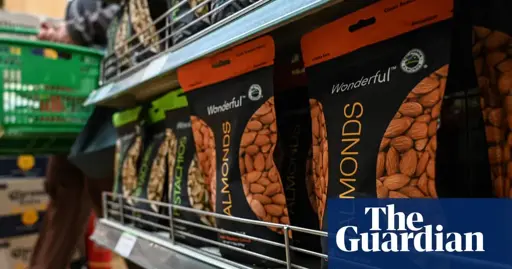- cross-posted to:
- worldnews@lemmy.ml
- cross-posted to:
- worldnews@lemmy.ml
The EU has agreed to impose retaliatory tariffs on €21bn (£18bn) of US goods, targeting farm produce and products from Republican states, in Europe’s first act of retaliation against Donald Trump’s tariffs.
The EU plans to introduce 25% tariffs on scores of goods from almonds to yachts, with the first duties being collected from 15 April, while the bulk apply from 15 May and the remainder from 1 December.
In a statement confirming the favourable vote by EU member states, the European Commission said: “The EU considers US tariffs unjustified and damaging, causing economic harm to both sides, as well as the global economy.”
The tariffs include US soya beans, grown abundantly in Louisiana, the home state of the House of Representatives speaker, Mike Johnson.
Ahead of the vote, analysis of the leaked list of customs codes by Politico found that EU duties would hit up to $13.5bn (£10.6bn) worth of exports from red states, including beef from Kansas and Nebraska, cigarettes from Florida and wood products from North Carolina, Georgia and Alabama.
The EU is facing calls to target US tech firms or banks in future retaliation, a potent but politically explosive target, as the US runs a €109bn (£94bn) trade surplus with the EU in service industries.
The outlook for negotiations is uncertain, amid questions over whether Trump’s goal is to create leverage over other countries – suggesting tariffs could be rolled back – or to raise revenues and reindustrialise the US, which points to their longevity.



God damn it, now I’m never going to afford that yacht I’ve been saving up for, with my hard earned working class salary.
I bet you haven’t even bothered to cut back on your avocado toast
I’ll have you know I’ve only had 5 avocado toasts so far this week!
That is basically the point of these counter tariffs.
They aim to hurt US industries, mainly from predominantly Republican states, while attempting to minimize the negative effects for European consumers and industry.
That is why they mostly cover luxury goods like yachts and motorcycles, and agricultural/other goods for which we can change suppliers to a country that is not tariffed.